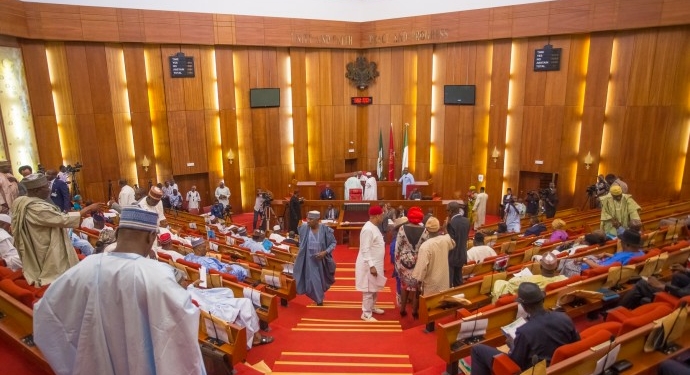The African Commission on Human and Peoples’ Rights (ACHPR) has been called upon by the Socio-Economic Rights and Accountability to order the federal government to withdraw the bill seeking to gag the media.
Recall that the federal government in June had requested the house of representatives to enact a law to regulate social and online media in Nigeria.
Stakeholders had condemned the move by the house of representatives to amend the laws establishing the Nigeria Press Council (NPC) and Nigeria Broadcasting Commission (NBC).
Many Nigerians have described the bill sponsored by Olusegun Odebunmi, a lawmaker from Oyo state, as “draconian” and an attempt to stifle free speech in the country.
In a statement on Sunday, Kolawole Oluwadare, SERAP’s deputy director, asked the commission-based in Banjul, The Gambia to issue provisional measures to urgently stop the government from pushing through the bills to gag the media.
“The push by the Nigerian government and the National Assembly to support and pass the two anti-media bills is unlawful, as passing the bills would be contrary to the country’s obligations to respect, protect, promote and fulfil the right to freedom of expression, access to information and media freedom under articles 1 and 9 of the African Charter,” Oluwadare said.
“These anti-media bills are the latest threats to freedom of expression, access to information and media freedom in the country. The bills are not in keeping with the provisions of the Declaration of Principles on Freedom of Expression in Africa, which supplements articles 1 and 9 of the African Charter.
“The Commission has the power to request Provisional Measures from the Nigerian government and National Assembly under Rule 100 of the Rules of Procedure to prevent irreparable harm and threats to human rights including freedom of expression, access to information and media freedom as urgently as the situation demands.
“The bills include retrogressive provisions that threaten human rights, including freedom of expression, access to information and media freedom, and could criminalize reporting and give the government overly broad powers and oversight over journalists, broadcast stations, media houses and media practitioners.
“If passed into laws, the bills would be used by those in power to intimidate and harass their critics, and to stifle freedom of expression, access to information and media freedom. The bills would have a chilling effect on the media thereby inducing some measure of self-censorship.
“Media freedom, which is an aspect of the right to freedom of expression, is now generally recognised as an indispensable element of democracy. The mass media promotes the free flow of information, which enables citizens to participate in a meaningful and informed manner in the democratic process.”
SERAP added that the federal government and national assembly have failed to produce any evidence that the bills are necessary or lawful, adding that a free press is the lifeblood of a healthy democracy.


Discussion about this post